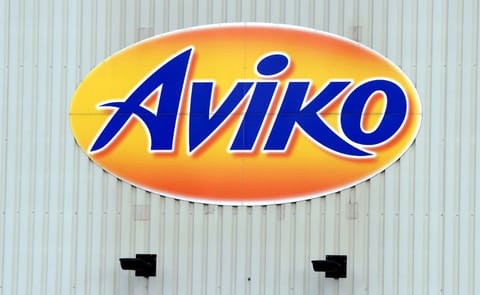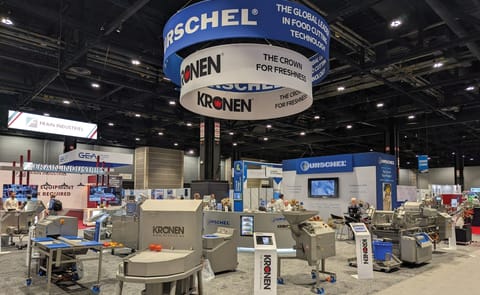Cavendish- and McCain-branded potato products in a Vancouver grocery store. Two United States class actions allege price-fixing by four leading potato companies. (Courtesy: CBC)
Alleged 'potato cartel' accused of conspiring to raise price of frozen French fries, tater tots across the United States

Four potato processing companies currently dominating a multibillion-dollar market in the United States are being accused of sharing detailed, sensitive inside information with each other as part of an alleged conspiracy to raise the price of their goods and make more money off consumers.
To be clear, this is a story about potatoes
Two proposed class actions filed this week in USA District Court claim that four leading potato companies — McCain Foods, Cavendish Farms, Lamb Weston and J.R. Simplot — have privately swapped intel to inflate the price of frozen potato goods, like fries, hash browns and tater tots, over the last several years.
Armed with access to each other's data on pricing and other sensitive information, as well as a direct line of communication to each other, the potato cartel allegedly moves prices skyward in lockstep, harming all purchasers of potatoes in the process.
McCain and Cavendish are both based in Canada. In a statement to CBC News, McCain said it strongly disputes any allegation that the company violated antitrust laws, or any other laws, with respect to the sale of frozen potato products.
McCain Foods intends to vigorously defend the recently filed lawsuits so that it can focus on what the company does best: delivering high quality, affordable food to customers nationwide.
The lawsuits have not been certified as class actions and the allegations have not been proven in court. None of the four companies have filed defenses and the other three did not immediately respond to requests for comment.
'Matching' price increases started in 2021, lawsuit alleges
Companies in Canada and the United States are supposed to settle on a price for their products on their own. When they co-ordinate with each other and set an agreed rate, it's called price-fixing — which generally makes the price higher for the consumer, since the main-player companies are agreeing not to compete with lower prices.
In one lawsuit filed in Illinois on Friday, a Pennsylvania-based supermarket chain alleged McCain, Cavendish, Lamb Weston and J.R. Simplot have been working together to fix the price of frozen potato products "above competitive levels," in violation of antitrust laws, since at least early 2021.
The document on behalf of Redner's Markets claimed the so-called potato cartel made "matching, simultaneous or near-simultaneous price increases" in 2021 and 2022. The claim said one restaurant owner in Washington, D.C., noticed the alleged timing and posted about it online on April 19, 2022.
A post on X from the owner of Ivy and Coney noted that all of the major suppliers for french fries and similar products were raising their prices at the same time and by the same amount, suggesting potential collusion.
Since the potato companies together control up 98 per cent of the frozen potato products market in the USA, the lawsuit says, an alleged agreement to work together would keep prices high across the board. The lawsuit accused Lamb Weston of telling managers to only talk about their competitors' pricing over text — not email — to avoid creating an email paper trail "that could be discovered in the event of an antitrust investigation."
A second suit filed Sunday also in Illinois on behalf of Alexander Gevoa, a consumer who lives in Virginia, said the companies allegedly used a data aggregation service and a trade association — Potatoes USA — to help swap information in order to "manipulate and co-ordinate prices."
If certified, Gevoa's class would include consumers who bought the companies' frozen potato products after Jan. 1, 2021. Redner's Markets' claim would include people or entities who bought the products from the same date until the point "that the adverse effects of defendants' anti-competitive conduct cease[d]."
The potato sector in the United States contributed over USD 100 billion US to the national economy in 2021, according to the National Potato Council.
Potato allegations come 1 year after Canada Bread fine
The potato allegations south of the border come just over a year after Toronto-based Canada Bread was fined USD 50 million for its role in a widespread scheme to fix the price of packaged bread for at least 14 years.
Loblaw and its parent company George Weston separately agreed this year to pay to settle a class action over their involvement in the scandal for USD 500 million, which lawyers representing the plaintiffs described as the largest antitrust settlement in Canadian history.











